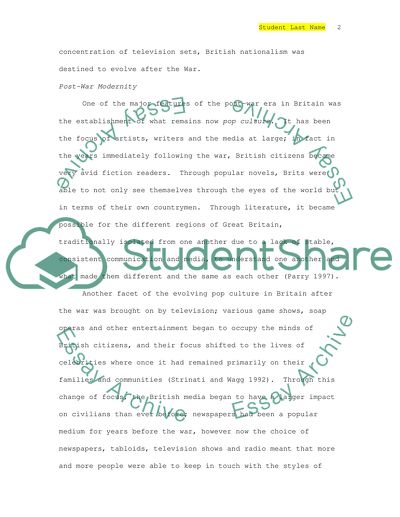Cite this document
(“Post-War Britain, Media and National Identity Essay”, n.d.)
Retrieved from https://studentshare.org/sociology/1528194-post-war-britain
Retrieved from https://studentshare.org/sociology/1528194-post-war-britain
(Post-War Britain, Media and National Identity Essay)
https://studentshare.org/sociology/1528194-post-war-britain.
https://studentshare.org/sociology/1528194-post-war-britain.
“Post-War Britain, Media and National Identity Essay”, n.d. https://studentshare.org/sociology/1528194-post-war-britain.


